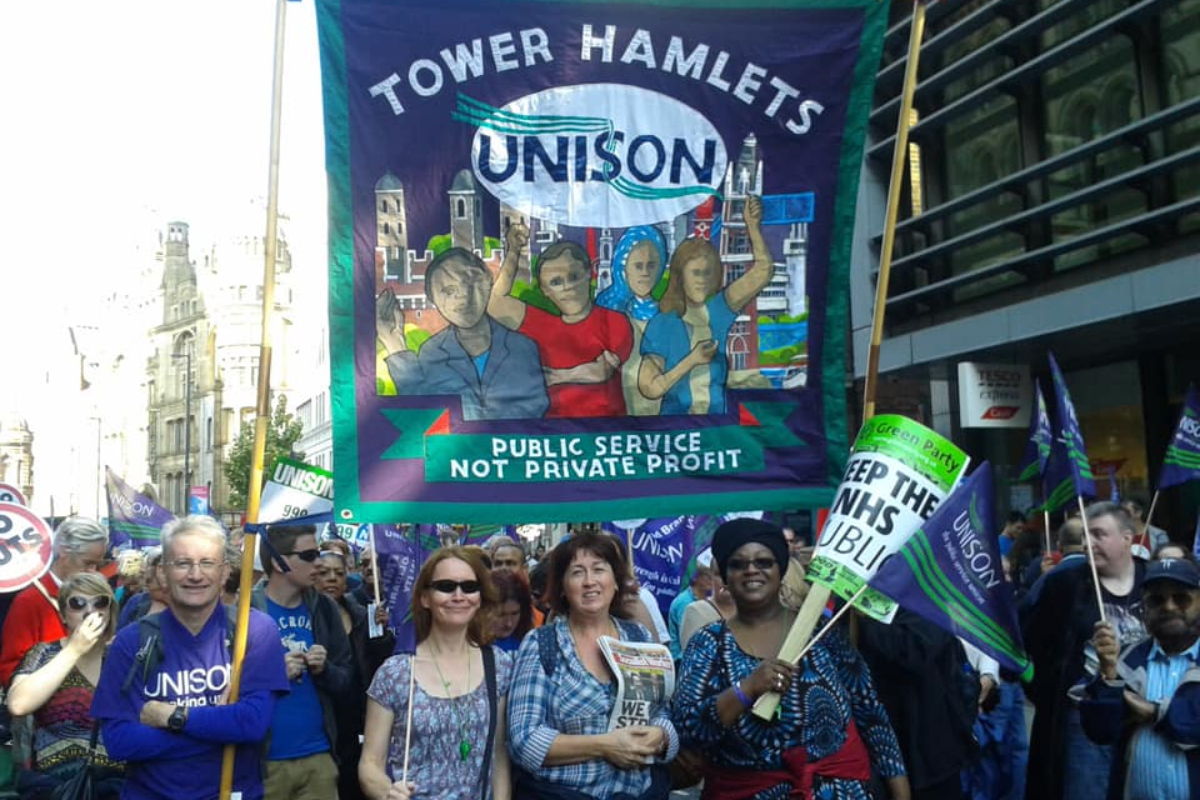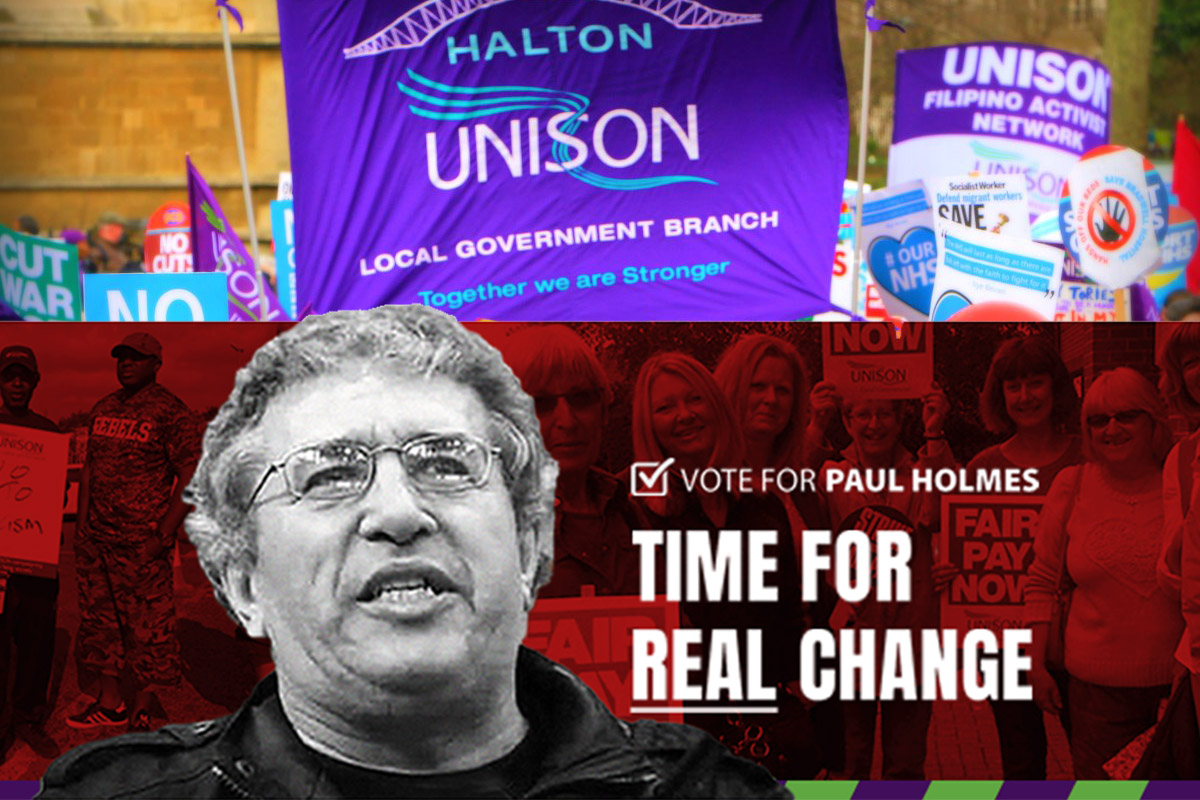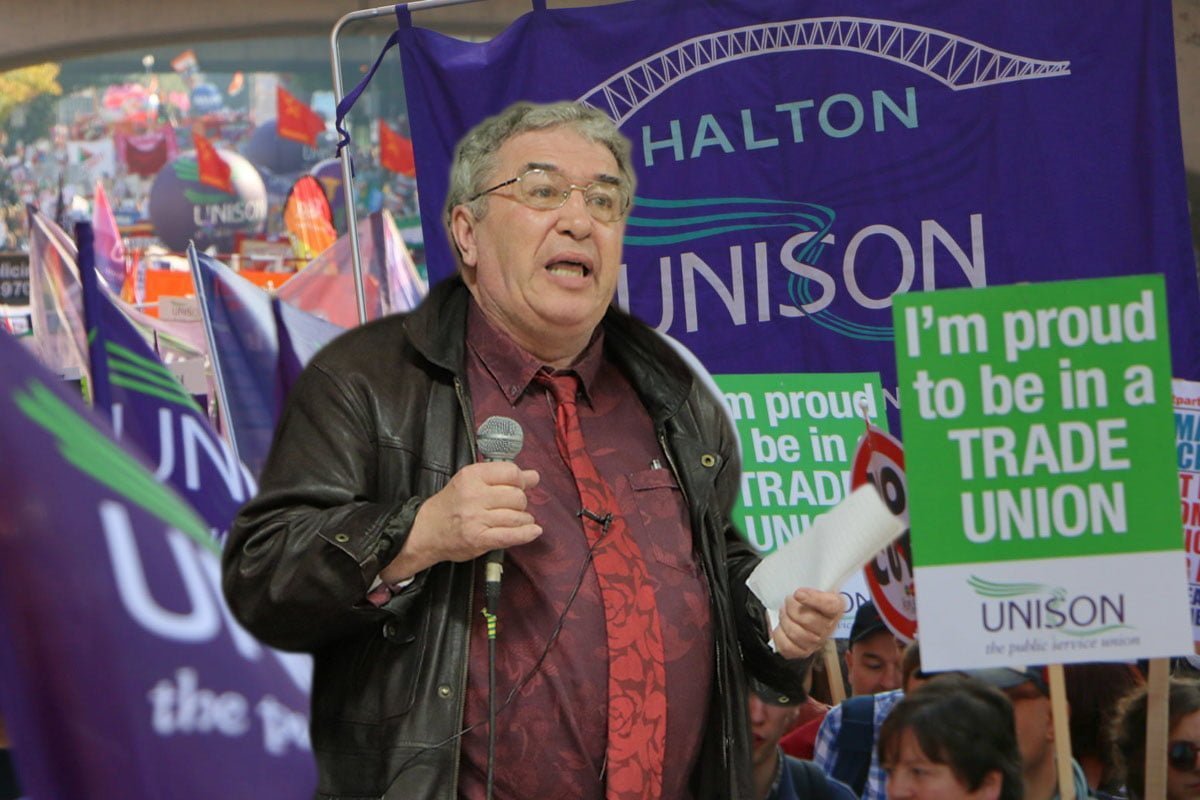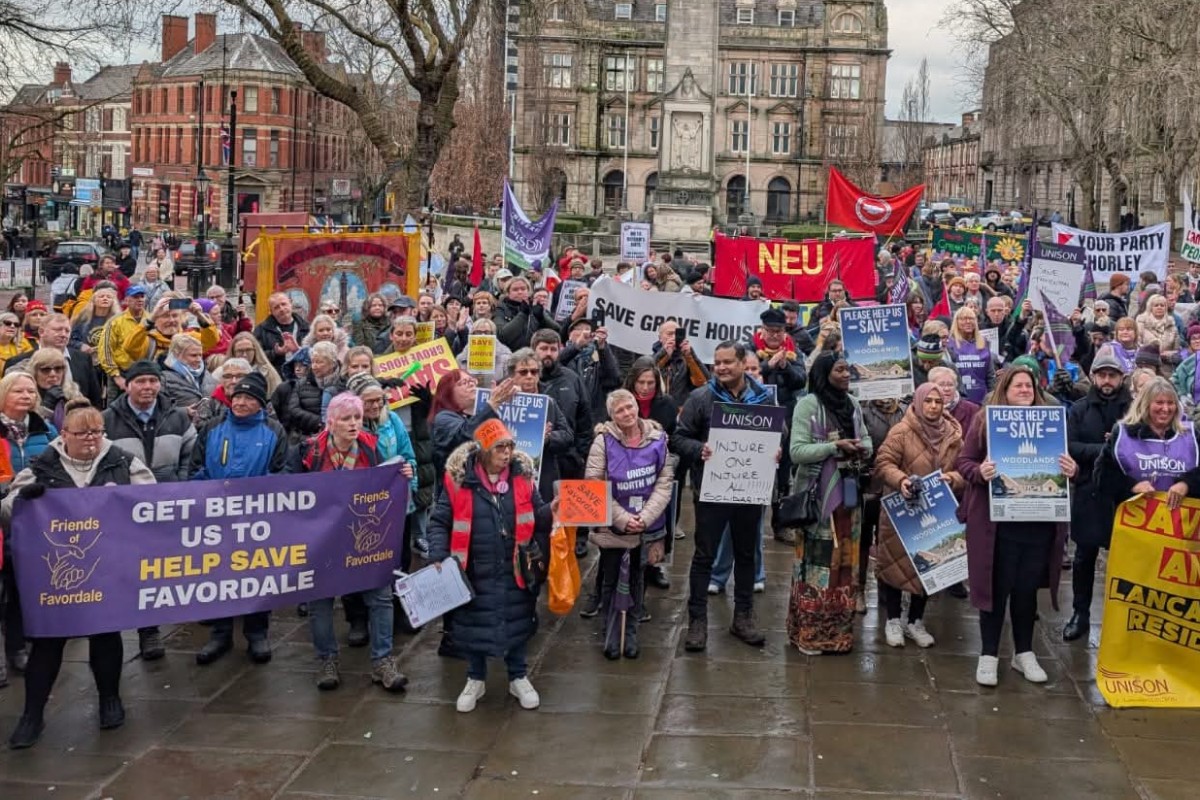The Unison general secretary contest is entering its final furlong. A win for Paul Holmes would be an enormous achievement for the left, transforming the whole of the labour movement. All out for a left victory!
Voting ends at the end of this month for the Unison general secretary election. And it’s evident that a head of steam has developed behind Paul Holmes’ campaign.
Large numbers of members have been posting pictures and videos of themselves voting for Paul. In Derry City, for example, a socially distanced queue of members took turns in posting their ballots, each explaining why they voted for Paul Holmes. John McDonnell MP also recorded a short video of support.
All the evidence suggests that the campaign has connected with a far wider layer of the membership than that of any previous rank-and-file candidate.
Significantly, a high proportion of the nominations to ensure Paul’s place on the ballot came from large, well-organised branches, with a particular concentration in the largest region of the union in the North West.
Members in the Cymru / Wales region will have been surprised that only one of the four candidates, Paul Holmes, published their election manifesto in Welsh. Considering that Welsh is the first language for 30 percent of the population, this is an oversight that might prove costly.
Political differences
The character of the different campaigns draws out some of the key political differences between the candidates. The Unison bureaucracy tends to approach campaigning in a quite routinist fashion, relying on the size of the union and on a thin layer of activists.
Both of the candidates drawn from the bureaucracy – Christina McAnea and Roger McKenzie – have been lacklustre, relying on the national press for publicity.
Paul’s campaign, by contrast, has targeted manual workers and those members whose voices don’t usually get heard. But it has also drawn in support from some big names in the movement, such as Ken Loach, Maxine Peake, Ricky Tomlinson and John McDonnell.
Bringing up the rear, Hugo Pierre’s campaign has been largely invisible. This reflects the political isolation of the Socialist Party.
Turning point
As we have explained previously, this is perhaps the most important election in the British labour movement for decades. At stake is the political direction of a trade union that organises in tens of thousands of workplaces – including every hospital, every local authority, most care homes, and the UK’s 32,770 schools.
Unison members feel the full impact of austerity: either directly through their own work and lives; or by seeing the damaging effects for the people to whom they provide services.
Notably, the union also plays a huge role in influencing the political direction of the Labour Party. A left-led Unison would therefore represent a serious blow to Keir Starmer and the Labour right wing.
A revitalised and strengthened Unison, led by a working-class fighter like Paul Holmes, would play a far more fighting role than it does today. It would mean a union that connects with members, leads from the front in defending services, and fights the cuts – all in a way that the current ineffective leadership does not.
There are no guarantees. The turnout in national Unison elections has historically been very low. In 2015, just 9.8% of the membership cast a vote. Getting the votes out will be the key to a victory for Paul Holmes in this election.
Looking ahead
 Going forwards, it is also vital that the energy around Paul Holmes’ campaign is translated into a strong organised left within the union.
Going forwards, it is also vital that the energy around Paul Holmes’ campaign is translated into a strong organised left within the union.
The blatantly sectarian decision of the Socialist Party to stand against the agreed left candidate means that the existing Unison Action Broad Left cannot survive. The Socialist Party has burnt its bridges. Given the importance of this election, they have destroyed any authority they may have held among left activists. For many new activists, they are an absolute irrelevance.
Early next year, nominations open for the National Executive Council (NEC) of the union. In recent years, many seats have not been contested, giving the right wing free rein.
That said, the left holds a sizeable number of seats on the NEC and is well within reach of winning a majority. Combined with the impetus of the campaign around Paul Holmes, this means that a strong left-wing challenge is on the cards.
But that won’t happen unless the energy of Paul’s general secretary campaign is channeled through a genuinely open and democratic left formation, with a presence in every region and in every service group.
Transform the unions
 Socialist Appeal’s supporters in Unison have played an active role in Paul’s campaign. For many of us, this has been our first involvement in a Unison election. For older comrades, this campaign has been a breath of fresh air.
Socialist Appeal’s supporters in Unison have played an active role in Paul’s campaign. For many of us, this has been our first involvement in a Unison election. For older comrades, this campaign has been a breath of fresh air.
We will keep fighting for every vote until the ballot closes. Every vote counts, and the stakes have never been higher. But in many ways, the end of this campaign is just the beginning.
The trade union bureaucracy represents an enormous brake on the movement of the working class. We will play our role in the transformation of Unison into an organisation worthy of its members.
In line with Unison’s electoral rules, this article has neither been endorsed or agreed by Paul Holmes. It expresses solely the opinion of the authors.






